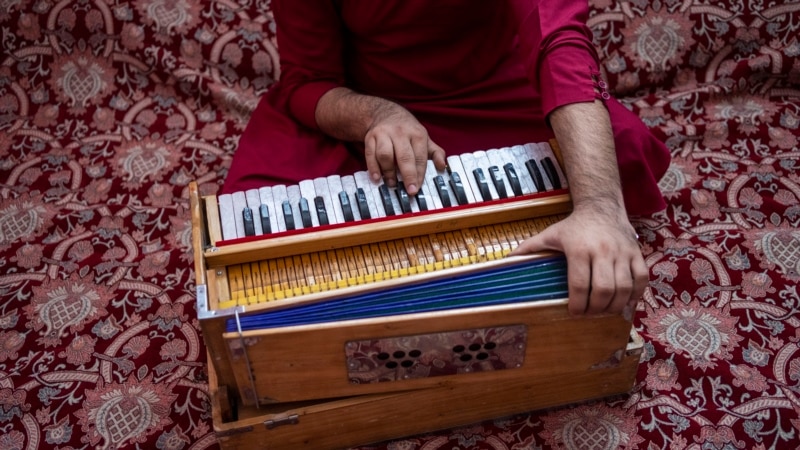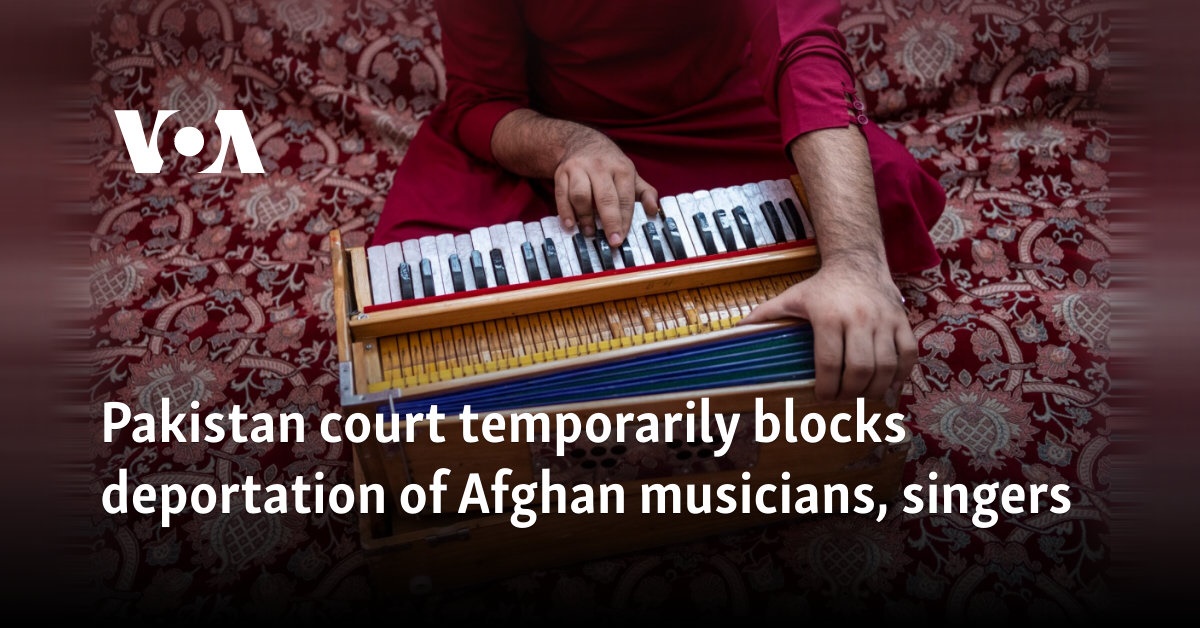
A high court in Pakistan on Friday barred authorities from forcibly deporting Afghan musicians and singers unless their asylum cases are resolved within the next two months.
The decision comes as a crackdown on thousands of refugees from neighboring Afghanistan who either do not have legal permits to stay in the country or have overstayed their visas.
He took refuge in Pakistan after Taliban insurgents returned to power in Kabul in 2021, imposing sweeping restrictions on civil liberties and banning music that conforms to their strict interpretation of Islamic law, known as Sharia given.
However, a group of 150 Afghan artists launched a legal challenge against their deportation to the northwestern province of Khyber Pakhtunkhwa, arguing that they risk persecution if they return home.
“The federal government…shall decide on the cases of grant or denial of asylum to all these petitioners within a period of two months,” the Pakistan court said on Friday.
“Till the final decision, these petitioners will not be excluded from [the] territory of Pakistan nor otherwise be forced to leave Pakistan and return to his country of origin Afghanistan,” the ruling read.
The court ordered that if the government is unable to resolve their cases within 60 days and requires additional time for a final decision, Pakistan’s Interior Ministry should allow the petitioners to remain in the country.
Attorney Mumtaz Ahmed told The Associated Press that Friday’s ruling was the first of its kind and a significant relief for her clients, who had lived in fear and uncertainty for months.
Pakistan launched a nationwide crackdown on foreign immigrants living illegally in the country in 2023. The move mainly affected Afghan refugees, forcing more than 800,000 of them to return to their impoverished country, which is struggling to recover from years of devastating war and natural disasters. Taliban occupation.
Refugee families have been reluctant to leave Pakistan, citing the Taliban’s ban on Afghan girls’ education beyond the sixth grade and restrictions on women’s access to workplaces except in certain departments, including health, immigration and police.
Those at risk of deportation also include Afghan citizens who are awaiting a response from the United States and European countries regarding their asylum applications. Many refugees worked as translators and guides for US-led international forces during their two-decade presence in Afghanistan, which ended in August 2021.
The United Nations and aid organizations have criticized Pakistan’s crackdown on Afghan civilians from the beginning, citing the dire economic situation and prolonged humanitarian crisis in Afghanistan.
Pakistan hosts more than 1 million legitimate Afghan refugees who fled their country due to Soviet occupation in the 1980s, subsequent civil war, and Islamic Taliban rule from 1996 to 2001. The Pakistani government has allowed those refugees to stay till June 2025.





Leave a Reply